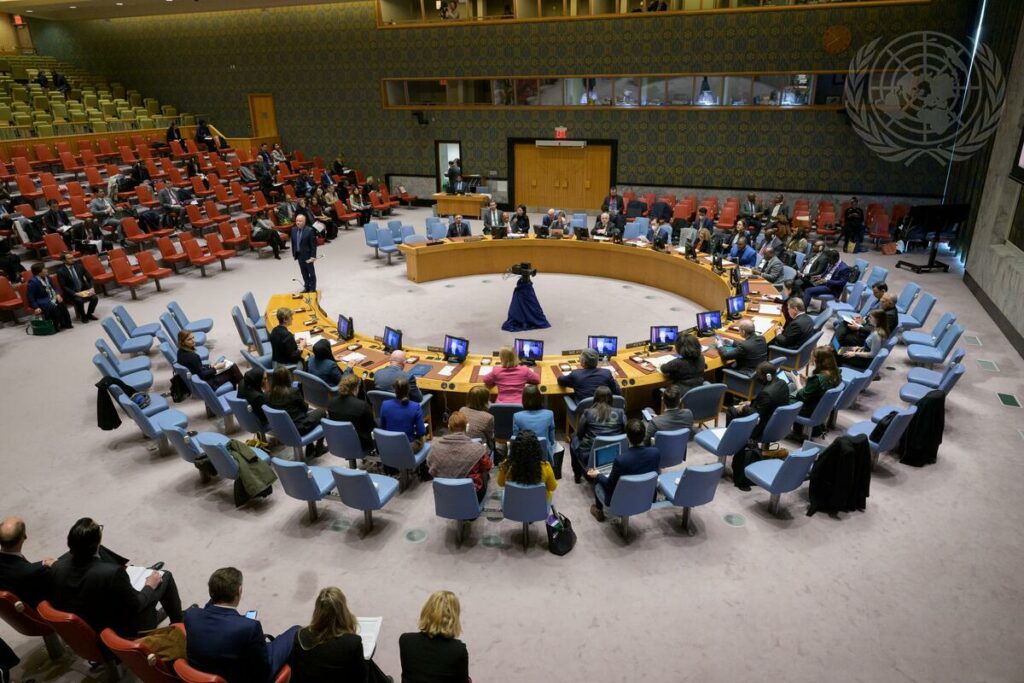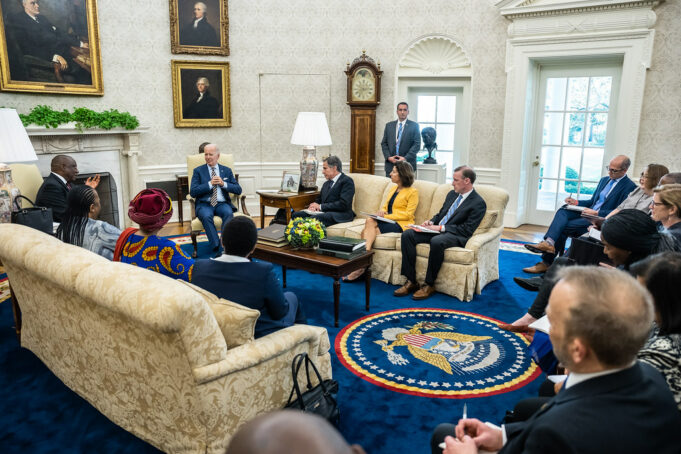In recent months, Africa has received much in the way of “optics” and symbolic gestures, but little in the way of substance. Africa is historically like a wealthy woman that gives her all to an abusive, unappreciative no-good man.

While being interviewed by the South African Broadcasting Corporation (SABC), Kenyan native and Loyola University law professor, James Gathii, said Africa appears to occupy a real “marginal place” in United States foreign policy.
A recent two-country trip to the continent by Pope Francis included stops in the Democratic Republic of Congo and the world’s most recent nation-state, South Sudan. Both of these countries could be called failed states. According to Quartz, during his trip, the pontiff highlighted the “exploiting (of) the country’s natural mineral resources,” by mining interests, leaving millions of people in abject poverty.
However, being critical of multi-national corporations and their exploitation of Africa’s mineral wealth does not stop hundreds of years of expropriation. During last year’s U.S.-Africa Summit, President Joe Biden called for Africa to receive permanent membership on the United Nations Security Council.
“Africa belongs at the table in every room … where global challenges are being discussed, and at every institution where discussions are being discussed,” Biden said. “That’s why I announced in September in the United Nations General Assembly that the United States fully supports reforming the UN Security Council to include permanent representation for Africa,” he added.

But are these observations and overtures symbolism without real substance?
Gathii, who has served as a professor of law and the Wing-Tat Lee Chair in International Law at Loyola Univ. Chicago School of Law, told SABC: “I think that the United States is trying to do a lot of symbolic gestures like adding Africa to the G20 or supporting Africa’s membership to the United Nations Security Council. These are merely symbolic gestures. They are like musical chairs. They’re not changing the basic infrastructure and decision-making within these bodies. That’s what makes it impossible for Africa to participate on an equal footing.”
Inside the United Nations General Assembly, Africa represents the largest bloc with 28 percent of the votes, ahead of Asia with 27 percent, well above the Americas at 17 percent, and Western Europe at 15 percent. Yet it’s a well-known fact, Africa has little decision-making power, with its occasional two-year terms on the Security Council. The real decision-making body is the Security Council, and its five permanent members, with veto power, which includes China, Russia, France, Great Britain, and the U.S.
Gathii, who graduated from the University of Nairobi in Kenya and Harvard Law School, commented on the “paltry” sum Biden offered the continent, during the U.S.- Africa Summit. “There was a lot of whining and dining, as you can imagine. My assessment is that Africa continues to occupy a really marginal place in U.S. policy.”
Without mentioning that the money pledged by Biden would have to first be authorized and approved by the U.S. Congress, Gathii said, “The total amount pledged … for trade investment, security and other matters, is a paltry $50 billion over three years. If you compare that amount to the amount from Africans from outside the continent, $96 billion in 2021 alone. (And that is) from remittances from African (expatriates) living outside of the continent.” If that amount is compared to the amount of money China invested in African infrastructure in 2020 alone, it’s about $384 billion, he added.
The $50 billion pledged by Biden is a small amount to address the pressing needs of all 54 countries which include losses and damages and climate mitigation.
Gathii also stated, “the amount of money Africa loses from illicit financial flows from multi-national corporations, it’s over $80 billion.”
According to a report published by futureofgood.com, it is because of activities like illegal trade and avoiding tariffs and taxes that large corporations take money away that African governments could use for social programming and infrastructure.
“A Brookings Institute report states that these billions of dollars (nearly $89 billion) which are lost every year could be crucial to the continent’s economic development,” noted futureofgood.com.
Follow @JehronMuhammad on Twitter













